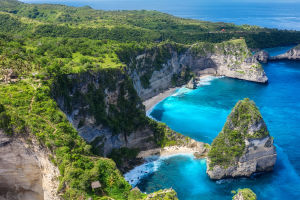Norway is a country that prides itself on its natural beauty and conservation efforts. The nation is home to numerous attractions and experiences that allow visitors to immerse themselves in the country's stunning landscapes and rich culture.
Some of the most popular destinations include the fjords, a UNESCO World Heritage Site that offers unparalleled views and unique ecosystems. Additionally, visitors can explore the Lofoten Islands, situated in the Arctic Circle, where they can experience the rugged coastal beauty and indulge in local cuisine.
The city of Bergen, a UNESCO World Heritage Site, offers visitors a chance to immerse themselves in well-preserved historical architecture and a vibrant cultural scene. Oslo, the capital of Norway, is known for its sustainable and eco-friendly initiatives, making it a popular destination for visitors interested in exploring the city's parks and green spaces while taking in its cultural institutions.
Meanwhile, Jotunheimen National Park is the perfect destination for outdoor enthusiasts, as it offers hiking, camping, and wildlife spotting opportunities amidst breathtaking glaciers, lakes, and rivers.
Norway's commitment to conservation and sustainability is evident in the efforts made to minimize the impact of tourism on the environment and support local communities.
Visitors can enjoy a range of activities that are eco-friendly, culturally immersive, and designed to showcase the natural beauty of Norway. Overall, Norway offers a unique and unforgettable experience for travelers looking to immerse themselves in the wonders of nature and culture, all while supporting sustainable tourism practices.
In addition to the aforementioned destinations, Norway boasts several other hidden gems that are worth exploring. For example, the Geirangerfjord, another UNESCO World Heritage Site, is known for its majestic waterfalls, snow-capped peaks, and pristine waters. The town of Ålesund, situated on the west coast, is renowned for its stunning Art Nouveau architecture and picturesque canals.
Norway's commitment to sustainability extends beyond its natural and cultural offerings. The country's transportation systems, including trains and buses, run on renewable energy sources, and the food industry has made strides toward reducing waste and carbon emissions.
Additionally, Norway's eco-friendly accommodations, such as eco-lodges and sustainable hotels, provide a guilt-free way for visitors to enjoy their stay while minimizing their impact on the environment.
Norway's sustainable tourism practices have not only helped to preserve its natural beauty and cultural heritage but also contribute to the country's economy. Sustainable tourism generates employment opportunities, supports local businesses, and promotes the conservation of the environment, making it a win-win for visitors and locals alike.
Norway offers a diverse range of attractions and experiences for visitors interested in sustainable tourism.
Whether it's exploring the fjords, hiking in national parks, or indulging in local cuisine, visitors can enjoy a guilt-free and unforgettable journey. By supporting Norway's commitment to conservation and sustainability, travelers can help preserve the country's natural beauty and cultural heritage for generations to come.


